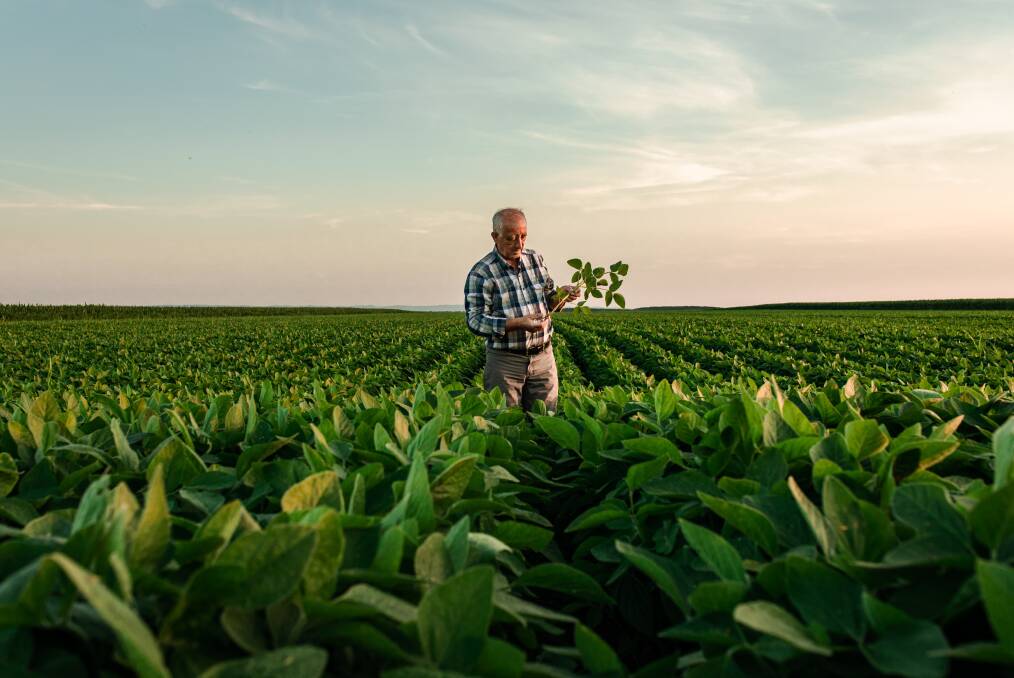
A PARTNERSHIP between one of the world's leading silicon fertiliser companies, Agripower, and the Australian government-backed Co-operative Research Centre for High Performance Soils (Soil CRC) was announced last week.
The agreement will see the organisations focus on increasing farming productivity, sustainability and profitability was also announced.
In partnership, the companies will undertake tests, trials and product development to deliver solutions to overcome consequential constraints the agriculture industry is facing.
More than 60 per cent of the 20 million hectares of cropping soils in Australia have subsoil constraints, including acidity, salinity and sodicity.
Due to these constraints, Australian crops are long recognised as yielding less than their water-limited potential.
Agripower and the Soil CRC will focus on making improvements in the extraction of moisture from the subsoil to overcome common constraints and improve root health.
Working with Agripower's plant available silicon, known as PAS-rich fertiliser Agrisilica, the project represents a significant opportunity in increasing farm productivity and profitability.
Agripower managing director Peter Prentice said the partnership with the Soil CRC was part of the company's commitment to empowering Australian farmers to overcome soil constraints and assist them in the critical role they play in getting food on tables everyday in a way that could also increase carbon sequestration and reduce methane and nitrous oxide emissions.
"Growers need financial security and access to superior fertilisers and soil amendments alongside the latest science and technology, so our mission is to help farmers on the frontline be profitable and improve practices," Mr Prentice said.
"We want to assist them in upscaling and sustaining livelihoods for themselves, as well as the wider communities, who rely on them for food and jobs.
"At the same time, developing sound, sustainable agriculture and capturing carbon."
Soil CRC chief executive officer Michael Crawford said they were very excited to be entering into research partnerships with industry collaborators, such as Agripower.
"The purpose of co-operative research centres is for industry and research to work together to solve real world problems and create opportunities," Mr Crawford said.
"This research will ultimately help farmers to improve their soil management and increase their productivity and profitability."
Through the partnership with the Soil CRC, Agripower will collaborate with Murdoch University, the New South Wales Department of Primary Industries, Agriculture Victoria, Burdekin Productivity Services, in Queensland and Charles Sturt University.
Four onfarm field experiments will be established in Western Australia, New South Wales, Queensland and Victoria to assess the long-term effectiveness of new practices and products to ameliorate multiple soil constraints in key soil types that support two major Australian crop sectors - grains and sugarcane.
The experiments will study the key areas of low water holding capacity and water repellent sands in WA, poorly structured dispersive alkaline soils in Victoria and NSW and dense sodic soils in Queensland.
Mr Prentice said Agripower had invested significantly in the research and development of its silicon fertilisers that were registered for use in organic agriculture, which reduce greenhouse gas emissions and increase carbon sequestration.
"That's all while giving farmers increased crop yield, increased crop quality, all of which bring powerful benefits to farmers, developing regions, researchers, consumers and ultimately the environment and our planet," he said.
"We've seen enormous benefits and significant results from more than 700 trials of Agrisilica worldwide in mitigating environmental impacts and boosting results for farmers and increasing farmers' incomes.
"The outcomes of the project are expected to improve current practices to ameliorate subsoil constraints through the development of new and more effective practices and through the use of sustainable fertilisers such as Agrisilica, which can be applied to all soil types and will benefit the broader agricultural industry."
The trials will include Agrisilica treatments and the data from the trials can be used in other markets where these soil constraints are common.
The project will be conducted from 2022-2024.
Want weekly news highlights delivered to your inbox? Sign up to the Farm Weekly newsletter.

